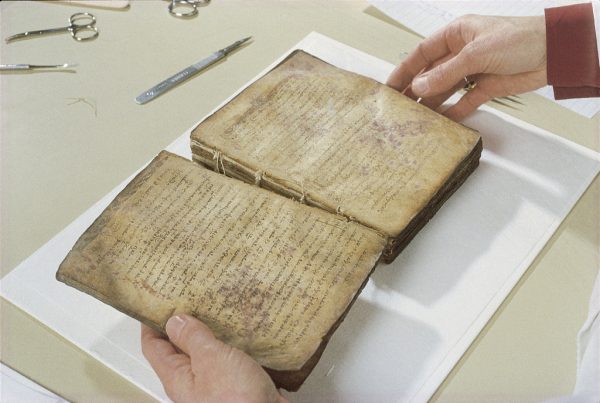As we advance through the Contemporary Period, modern society is developing technologies at an increasingly fast rate. Every year, we see the rise of yet another more advanced smartphone, as soon as you walk out of an electronics store with your brand new state-of-the-art laptop computer it is already outdated, and we are seeing an increasing number of electronic devices aiding the modern human with everyday activities. Many of us most likely struggle to imagine what life would be like today if we were suddenly void of the internet, we panic if our mobile phones suddenly don’t work, heck some of us fail to comprehend an alternative method of communicating a party invite without the use of Facebook’s Event maker!
Technology is everywhere in our lives and there is no chance that society will turn back the clocks on this one. But what is the ever increasing use of technology doing to our history and library systems?
Books In History
The history of books can be traced all the way back to the stone tablet ages. The first book that appeared in closest resemblance to it’s modern form – a stack of bound paper – was the codex, which was invented in the middle ages around the 2nd-4th century. This technology has had minimal changes made to its design in over 1500 years. The design was, and is perfect, and there was no possible way to make it any better… until now.

Source: Flickr
Modern Reading And Libraries
With today’s modern technology, people can access books in a variety of different formats. There are Kindles, iPads and tablets, smartphones and not to mention the plethora of reading material available to download on desktops and laptops via the internet. Alongside the advancement of modern technology, society is becoming increasingly aware of their impact on the environment, in particular, deforestation. Since trees are required to generate the mountains of paper required to distribute even a single new release novel, people are becoming more interested in a paper-free approach. This is not just limited to our favorite reading materials, the classic book, but also to newspapers, utilities bills, birthday and celebration wishes, emails and even that nasty junk mail that clogs up our mail boxes every week.
So what effect does all of this technology have on our libraries? Libraries are defined as “a collection of manuscripts, publications, and other materials for reading, viewing, listening, studying, or reference.” When we think about a library we think of shelves and shelves of books stacked to the ceilings containing masses of information; a place where we can sit in silence and get absorbed in a good fiction book or learn something exciting. But with this evolving digital era, we are starting to find libraries that contain less books and more computers. They promote the use of your own devices using their wireless internet capabilities and I have even come across new libraries being named an “e-library.” Books are becoming obsolete.
I, personally, hate that books are becoming a thing of the past. I doubt I am the only one who struggles to read words off a screen and still prefers a good book over a tablet or reflective computer monitor. Although I enjoy spending my weekend mornings down at the local swap meet or flea market searching through the growing number of books for sale, it also saddens me to realize that people are swapping out their books for one of the new technology sources, such as the Kindle.
Don’t get me wrong, I am an advocate for environmental awareness, but I hate to see something that has been a part of history for more than a millennia, disappear before our eyes. I fear that in the future, our children will not get to experience the wondrous sensation of the smell of a new book or the way the pages feel when you open them for the first time. Or alternatively, the smell of an antique book and the delicate manner in which you feel you need to handle it.

Source: Pixabay
There is a lot of history surrounding books and many libraries around the world could easily be classified as a museum, mostly for their collection of one-of-a-kind antiques or as an architectural masterpiece. However, I fear that soon, all libraries will become places of history; history for not only ancient texts and manuscripts, but even for the modern books that we see today. People no longer need to access libraries to gather information, so soon, if they haven’t already, new libraries will no longer get built. How disheartening for the book lover.
https://www.youtube.com/watch?v=wrio51C-Bxg
YouTube Channel: NatGeo Times
Featured image via Pexels



